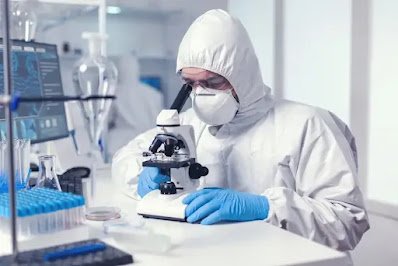Lymph nodes are not immune to cancer, which is a powerful foe that can affect any part of the body.
By removing harmful substances and stopping their spread, lymph nodes are essential components of our immune system.
They might, however, also serve as a battlefield for cancerous cells.
Understanding the symptoms of cancerous lymph nodes is essential for effective treatment, which depends on early detection.
We’ll look at the symptoms and red flags that could point to lymph node cancer in this article.
Swollen Lymph Nodes
Swelling is one of the most typical symptoms of cancerous lymph nodes.
Small, bean-shaped glands called lymph nodes are dispersed throughout the body but are typically not palpable or visible.
But these nodes may enlarge if cancer cells invade them.
Even though swollen lymph nodes can be a symptom of a number of diseases, including infections, persistent and painless swelling in one or more body parts should raise alarm and demand further testing.
Pain and Discomfort
Pain or discomfort is frequently experienced when lymph nodes are cancerous.
Depending on where the affected nodes are and the type of cancer, this pain may be dull, aching, or sharp.
Cancerous lymph node pain can be intermittent or constant and could get worse over time.
It’s crucial to see a doctor if you experience persistent or unexplained pain in your neck, armpits, or groin.
Changes in Size and Texture
Changing size and texture are possible in cancerous lymph nodes.
They might turn rubbery, firm, or hard to the touch.
Normally, flexible and soft lymph nodes are present.
It is cause for concern and requires medical attention when you notice a change in the texture or size of a lymph node, especially if it persists for a number of weeks.
Skin Changes
Skin changes in the affected area can result from cancerous lymph nodes.
Redness, warmth, or an obvious rash may be some of these modifications.
The skin that covers the affected lymph node may occasionally have pits or dimples that resemble orange peels.
Skin changes should be evaluated as soon as possible in conjunction with other symptoms.
Unexplained Weight Loss
Unexpected weight loss may indicate a number of illnesses, including cancer.
Lymph node cancer can interfere with the body’s regular metabolic functions, resulting in unintended weight loss.
Consult a healthcare professional for a thorough evaluation if you experience a significant and unexplained weight loss, especially if it occurs along with other symptoms from this list.
Fever and Night Sweats
Fever and night sweats are frequently brought on by inflammation and infections, but they can also be signs of a more serious underlying condition, such as cancer, if they persist despite no apparent illness or infection.
These symptoms can be brought on by cancerous lymph nodes when they obstruct the body’s immune response.
It’s critical to keep an eye on your body’s temperature and get medical help if you experience a persistent fever or night sweats.
Fatigue
Due to the body’s ongoing fight against abnormal cells, cancer can cause significant fatigue.
Even after getting enough rest, if you continue to feel overly exhausted for an extended period of time, it could be an indication that something is wrong.
There are many health conditions that can cause fatigue, so it’s important to take other symptoms into account as well.
Conclusion
Recognizing the warning signs is essential for early detection and treatment of a serious medical condition, which can be indicated by cancerous lymph nodes.
The signs and symptoms discussed in this article can point to cancer, but they can also be caused by a number of other conditions.
It’s crucial to avoid drawing conclusions based only on these indications.
Consult a medical professional for a thorough assessment and accurate diagnosis if you experience any of these symptoms.
The chances of effective treatment and recovery are greatly increased by early detection and intervention.
The vigilance and pro-active attitude are necessary for your health.






